Abstract. The aim of this paper is to identify the factors that drive support levels for wind on-shore electricity in the Member States of the European Union (EU) with the help of econometric techniques. The econometric analysis is based on cross-section linear regressions with ordinary least squares. Four alternative specifications of the model have been estimated. The estimates comply with the...
Marzo 2014

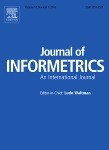
Abstract. Subject classification arises as an important topic for bibliometrics and scientometrics, searching to develop reliable and consistent tools and outputs. Such objectives also call for a well delimited underlying subject classification scheme that adequately reflects scientific fields. Within the broad ensemble of classification techniques, clustering analysis is one of the...
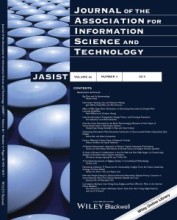
Abstract. University rankings generally present users with the problem of placing the results given for an institution in context. Only a comparison with the performance of all other institutions makes it possible to say exactly where an institution stands. In order to interpret the results of the SCImago Institutions Ranking (based on Scopus data) and the Leiden Ranking (based on Web of Science...
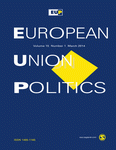
Abstract. This article tests the role of deliberation in potentially reducing the gender gap in knowledge. It compares gender differences in knowledge of both participants and non-participants before and after the Europolis deliberative event took place by making use of the difference in difference estimation method. Findings show that deliberation increases the political knowledge of...
Febrero 2014

Abstract. The lack of an integrated information policy for scientific activity evaluation has led to a wide range of information products and services that are used for such purposes, although they were not originally designed for that. While it is true that these tools have limitations and deficiencies, and in several cases are technologically and methodologically obsolete, possibly the biggest...
Abstract. Personality plays a role in human behavior, and thus can influence consumer decisions on environmental goods and services. This paper analyses the influence of the big five personality dimensions (extraversion, agreeableness, conscientiousness, neuroticism and openness) in a discrete choice experiment dealing with preferences for the development of an environmental program for forest...

Abstract. Firms acquire external technological knowledge via different channels. In this paper, we compare the technology sourcing of foreign subsidiaries and domestic firms looking at domestic R&D outsourcing, international R&D outsourcing, domestic cooperation for innovation and international cooperation for innovation. We use data from the Spanish Technological Innovation Panel for the...
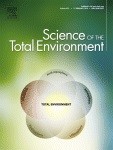
Abstract. There are many reasons of concern about the quality of water for domestic uses. The strategic goals of water tariffs must include savings, efficient management and equity in order to optimise availability of the best quality water. The main domestic uses of water are food preparation, personal hygiene and household cleaning; not all of them need the same quality, and for some of them...
Enero 2014
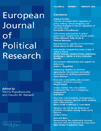
Abstract. While the economic vote exists in Western democracies, the question of its stability remains a subject of controversy. This article focuses on two possible factors behind the instability observed: the endogeneity problem and the restricted variance problem. The former concerns the influence of partisan thinking on economic perception, while the latter concerns the influence of economic...
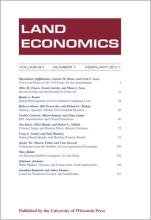
Abstract. One of the main issues on the research agenda regarding stated preference methods concerns the heterogeneity of preferences either within or between individuals. We present a multilevel mixed model (MMM) to capture heterogeneity in deterministic utility components, instead of simply leaving them to random components. MMM captures heterogeneity at different levels: individuals, locations...


